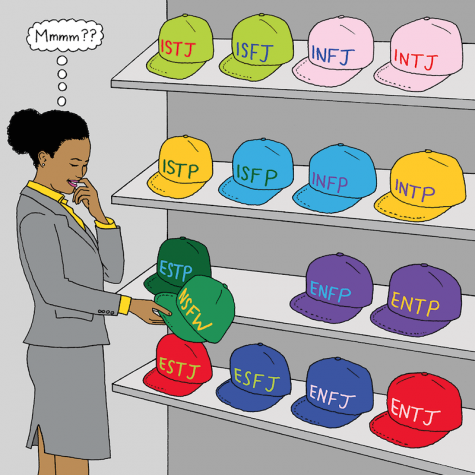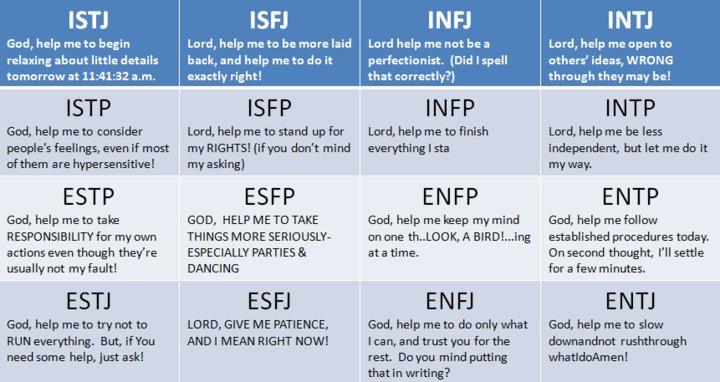Myers-Briggs is something you should care about.
February 9, 2017
School is hard; everyday we are forced to talk and work with all sorts of people. To say that you genuinely love everyone that you have ever interacted with would be a blatant lie. People are different, some people click and some don’t. If you think about it, who you are today is mostly based on the decisions you have made up to this point. These decisions are what entail your personality and thus, you.
Psychologists have studied personality for centuries and what they come to realize is that there are certain traits that make up different personalities. These different “traits” are the basis of the most widely used personality test today, the Myers-Briggs type indicator or the MBTI. The four traits are: Extrovert or Introvert; Sensing (practical) or Intuitive (imaginative); Feeling or Thinking; Judging (planner) or Prospecting (laid-back). With different 16 personality types, everyone eventually finds home in one category.
To understand this better, picture two different people at Ames High. For example Rachel Junck is an ESTJ whereas Sabrinna Hegelheimer is an ESFJ. Two very different people but very subtle differences. Juncks sees herself as more of analytical thinker (noting the T) whereas Hegelheimer chooses to base her decisions on her emotions (noting the F). Myers Briggs is a way to cleanly organize and priorities the differences in personalities. There are four letters that will define you forever.
The main difference between introverts and extroverts is that extroverts gain their energy from being around other people and introverts gain their energy from being alone. Types S and F are Sensing or Intuitive. Sensing people take in their information from their senses, and Intuitive thinkers take in information via patterns and possibilities. The third letter is Thinking or Feeling. This states whether you think with your head or your heart. The final letter: Judging or Perceiving. The J or P explain lifestyle preferences; the Judging type prefers to be organized and have life planned out, but Perceivers find plans to be claustrophobic and find peace in open ended plans.
Myers-Briggs is pure science and has uncontested research. Wondering where you fall on the four letter spectrum? Go to www.16personalties.com and take their easy quiz to find out about all yourself. Once you discover who you are in a quantitative term it’s easy to delve into your deepest goals, desires, and interactions with others.
To further analyze the personality information past the personal level you can find your compatibility with others based on a “compatibility chart”.




























